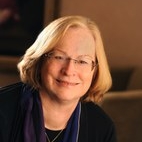THIS ARTICLE IS MORE THAN FIVE YEARS OLD
This article is more than five years old. Autism research — and science in general — is constantly evolving, so older articles may contain information or theories that have been reevaluated since their original publication date.

Listen to this story:
Over the past 20 years, my colleagues and I have watched a group of toddlers suspected of having autism grow into adults. By working with these individuals for such a long time, we’ve been able to see how their skills and behaviors differ as children and how these individual differences change over time.
We are pretty good at measuring skills that are important during childhood. These include imitation and joint attention — when two people focus on a single object. But as children with autism grow up, it becomes more and more difficult to identify the aptitudes that matter most for their quality of life.
We can use standard tests to assess language skills and intelligence — factors that we know affect a person’s independence. But these fail to capture the excitement of a young adult with autism who has found a niche, whether it’s drawing anime, checking baseball stats for sportscasters or loading large dishwashers in a restaurant. Similarly, standard measures and questionnaires may not reflect the frustration of a person who doesn’t succeed in school or struggles to find work.
One fairly accurate measure of progress toward independence is a person’s adaptive skills. These reflect the extent to which an individual takes care of him or herself, with a focus on hygiene, eating and communicating basic needs.
Slipping skills:
One measure of adaptive skills, called the Vineland Adaptive Behavior Scales, is a caregiver interview that measures a person’s ability to function day to day. For instance, it contains questions that assess daily living skills such as hygiene, cooking and getting dressed, as well as community functioning, such as using transportation and buying things. It also measures independence in social interactions — calling up a friend, offering help to someone — and communication skills.
In a study published earlier this year in Autism, we tracked Vineland scores for 179 people with autism as they aged from 2 to 21 years. We then grouped the participants based on the change in their scores over time. We wanted to see what other factors predicted scores on the Vineland, our measure of outcome.
We found that some aptitudes — such as language comprehension and nonverbal cognition — tested using other measures are associated with good daily living skills and independence in adults with autism just as they are in people without autism. In addition to these more general factors, specific difficulties in social development, communication and other realms influence the daily living skills and independence of people with autism.
Some of our findings point to alarming declines over time. For instance, we found that young adults who have more limited cognitive abilities use fewer daily living skills at age 21 than they did at 18. Two types of skills in particular seem to decrease: personal skills, such as taking a shower, and community skills, such crossing a street or showing a sense of privacy. The latter involves knowing what sorts of activities you can do where, for example.
Because the Vineland does not measure a person’s ability to do something, but rather what a person typically does, we expect that these young adults aren’t losing their skills, but instead are having fewer opportunities and less motivation to use them. Perhaps these individuals have less frequent chances to cross streets, for example, because they go out only rarely. Or they may be less inclined to take a shower because they feel that no one notices how they look other than their parents.
Meaningful measures:
We also found that adults with autism whose caregivers sought out and participated in early interventions have stronger adaptive skills than those whose parents weren’t as involved. In our sample, a caregiver’s involvement in this way had a stronger effect than which therapy they sought or even the total number of hours of treatment during the preschool years.
We don’t know whether this effect reflects the parents’ determination and availability for interventions, or a child’s access to interventions. Either way, however, it suggests that parents who were involved in learning with their child when the child was young are better equipped than less-involved parents to help their son or daughter develop independence and daily living skills as adults.
More targeted research, such as studies that test methods for supporting adaptive skills, may point us toward the best ways to prepare children with autism to participate in the activities that make young adult life meaningful. As educators and clinicians help children with autism develop certain skills, they should keep in mind that some of the strategies that are useful for children with autism may be less relevant to adolescents and adults.
Further research may shed light on other features that make life fulfilling for adults with autism. Our current tests capture reasonable benchmarks, such as language skills, academic achievement, economic independence and an absence of psychiatric disorders. But these targets may not reflect all of the aspects of a positive life.
The opportunities available to teenagers and young adults more generally, such as college courses, internships, extracurricular activities and sports, may not be accessible, appropriate or appealing to those on the spectrum. With the help of families, autism programs and centers are working to extend the types of growth opportunities available to individuals with autism. Our work underscores the importance of these initiatives as well as the need for better ways to assess the quality of life of young adults on the spectrum.
Catherine Lord is professor of psychology at Weill Cornell Medicine and founding director of the Center for Autism and the Developing Brain at New York-Presbyterian Hospital.

By joining the discussion, you agree to our privacy policy.